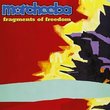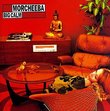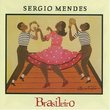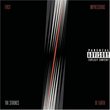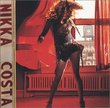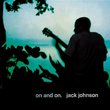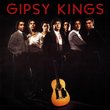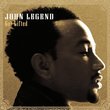| All Artists: Richard Ashcroft Title: Human Conditions Members Wishing: 1 Total Copies: 0 Label: Virgin Records Us Original Release Date: 1/1/2003 Re-Release Date: 2/25/2003 Genres: Alternative Rock, Folk, Pop, Rock Styles: British Alternative, Singer-Songwriters, Adult Alternative Number of Discs: 1 SwapaCD Credits: 1 UPC: 724381338421 |
Search - Richard Ashcroft :: Human Conditions
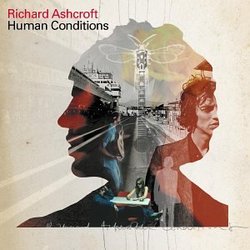 | Richard Ashcroft Human Conditions Genres: Alternative Rock, Folk, Pop, Rock
Distancing himself still further from the howling guitars and shoegazer drones of his old band, the Verve, on his second solo effort, Richard Ashcroft maintains the stripped-down, introspective aesthetic of 2000's Alone wi... more » |
Larger Image |
CD DetailsSynopsis
Amazon.com Distancing himself still further from the howling guitars and shoegazer drones of his old band, the Verve, on his second solo effort, Richard Ashcroft maintains the stripped-down, introspective aesthetic of 2000's Alone with Everybody. Human Conditions focuses on the same spiritual battle of religion and love versus desperation and disillusionment?it's a conflict Ashcroft has been waging with himself and the world since the Verve's intensely sad 1995 release, A Northern Soul. Whether he's winning or losing these psychic skirmishes is still in question, but songs like "Paradise" ("How long can I stay here? How long can I pray here?") and "Lord I've Been Trying" indicate a deepening spiritual inspiration. Listening to Ashcroft work out his demons used to be a lot more fun; many former Verve fans undoubtedly miss the band's fire and theatricality, as well as the thematic counterpoint once provided by guitarist Nick McCabe. Undeniably though, the deeper he digs, the more interesting and mature he sounds, even without a bolt of electrified angst to drive the point home. --Matthew Cooke Similarly Requested CDs
|
CD ReviewsSliding further into Lite Rock oblivion Craig Dominey | Atlanta, GA United States | 05/30/2003 (2 out of 5 stars) "Richard Ashcroft is the Sting of his generation - a man of immense talent, charisma and ego who, despite all his efforts, is a much more effective bandleader than a solo artist. I was listening to The Police's ZENYATTA MONDATTA the other day for the first time in years, and marveled at how creative and energetic Sting sounded back then with the great Stewart Copeland and Andy Summers backing him up. But it goes without saying that when those two "spark plugs" were gone, Sting became the dull adult contemporary star he is today. His ego would never allow it, but Sting desperately needs The Police back together to regain any creative respectibility.The same goes with Ashcroft, whose records with The Verve were some of the most beautiful, creative, soul-searching recordings of the 1990s. URBAN HYMNS, to continue the Police analogy, was their SYNCHRONICITY - an album where all the band's strenghts seemed to come together (shoegazing space jams, blistering rock, lush and introspective ballads). Ashcroft was without question the star, but you could feel the tension of the rest of the band pushing him and, it turns out, tearing themselves apart.Now a solo artist without anyone to tell him "no," Ashcroft has recorded two CDs that are essentially extensions of "The Drugs Don't Work" from HYMNS - heavily orchestrated self-confessionals that grow tiresome quickly. It's fine to record a song or two about crying out to God, how you've got the "blues," how your drug taking days are over, how you found the love of your life (Heaven sent, no less). But every song on HUMAN CONDITIONS follows these themes, with Ashcroft making what he must consider to be a Grand Statement On The Mysteries Of Life, but with lyrics that come out horribly simplistic and cliched. Spiritualized-lite, if you will. The lyrics get so tiresome on this CD that I found myself paying more attention to the music itself. Ashcroft's first CD, ALONE WITH EVERYBODY, was much maligned in the press and with his fans, but to me - at least sonically - it was an extension of what The Verve had achieved with HYMNS, and was a beautiful sounding CD with quite impressive production (especially through headphones). But Ashcroft must have believed his critics, for HUMAN CONDITIONS is stripped down to a fault, with one restrained, mid-tempo song after another. Most of the songs slide by without any catchy melodies, instantly forgettable.There are some songs that rise above the others - "Bright Lights" is the closest this CD comes to a Verve-sounding rock song, but is marred by an annoying tabla courtesy of Talvin Singh. "Buy It In Bottles" is a pretty song, but essentially a rehash of "Drugs." "Science of Silence" steals the chorus of "Lean On Me" to catchy effect. And "Nature is the Law" wins the award for ambition alone, as Ashcroft not only imitates Johnny Cash, but brings in Brian Wilson for an overblown, Beach Boys-esque chorus that acutally sounds closer to the choir chants you hear on a Vangelis soundtrack. It has to be heard to be believed.But those are the exceptions to an otherwise lifeless CD that is a backwards step from his solo debut. Ashcroft desperately needs the energy of Verve to achieve the spiritual heights he's obviously striving for. Let's hope he heeds the warning before he joins Sting and Phil Collins on a supermarket muzak station near you." An even better sophmore effort. Cary S. Whitt | Columbus,Ohio USA | 02/26/2003 (4 out of 5 stars) "I loved The Verve, repeat, I loved The Verve. I, like most, found Richard's first solo disc a bit, well, disappointing. It did have it's moments, I thought "Brave New World", "C'Mon People" and You On My Mind In My Sleep" were all great tunes. But no, it really wasn't Urban Hymns was it. It is just now that I feel that is OK. Let's all face it, Richard is in a much different place now... wife, baby, freedom, those things make a big difference in one's life.With Human Conditions, he continues on the same sort of road. The songs are very well thought out, very personal and very good. I think this is a stronger post Verve effort than "Alone With Everbody". He starts the album off again with the first single, "Check The Meaning", it is quite good. The best part of the song is the moment that familar voice kicks right in with a hook that is very catchy. The rest of the record follows suit, again a more serious affair, but that doesn't make it too heavy on the soul. I esp. like the uplifting track, "Science of Silence", it is a nice string heavy tune with a nice message. I also enjoy, "Buy It In Bottles", it is one of the best things his done on his own for sure. All in all, "Human Conditions" is a great record. Just don't think of it as a return of The Verve, If you still want it to be a Verve record, think of it more like Urban Hymns, without the drugs, and fighting of course." Please listen alexander laurence | Los Angeles, CA | 04/23/2004 (4 out of 5 stars) "Richard Ashcroft has proved with his solo work that he is on a serious spritual quest. It's not really sure whether if this is a religious awakening as much as a general search for a deeper meaning in life. This is conveyed by the pain and ache in Ashcroft's voice. This happens when you get to be thirty. The songwriting is stronger if not more convincing of his own preoccupations on this second solo record. Songs like "Check The Meaning" and "Science of Silence" are improvements from "Alone With Everybody" two years ago. He has moved on artistically with the help of the great Brian Wilson (ex-Beach Boys) and Talvin Singh. The albums with The Verve offered a lot of promise, and by 1998, they were England's biggest rock and roll band. Recently, Ashcroft's work with The Chemical Brothers or DJ Shadow haven't colored his own solo work though. It is firmly rooted in folk music and soul music: He is a true songwriter in the modern world. In songs like "Bright Lights" he deals with the allure of urban myths, but turns away, and searches for something greater. This embrace of the receding beauty of life and nature may continue over many albums to come. Let us all hope so."
|

 Track Listings (11) - Disc #1
Track Listings (11) - Disc #1
